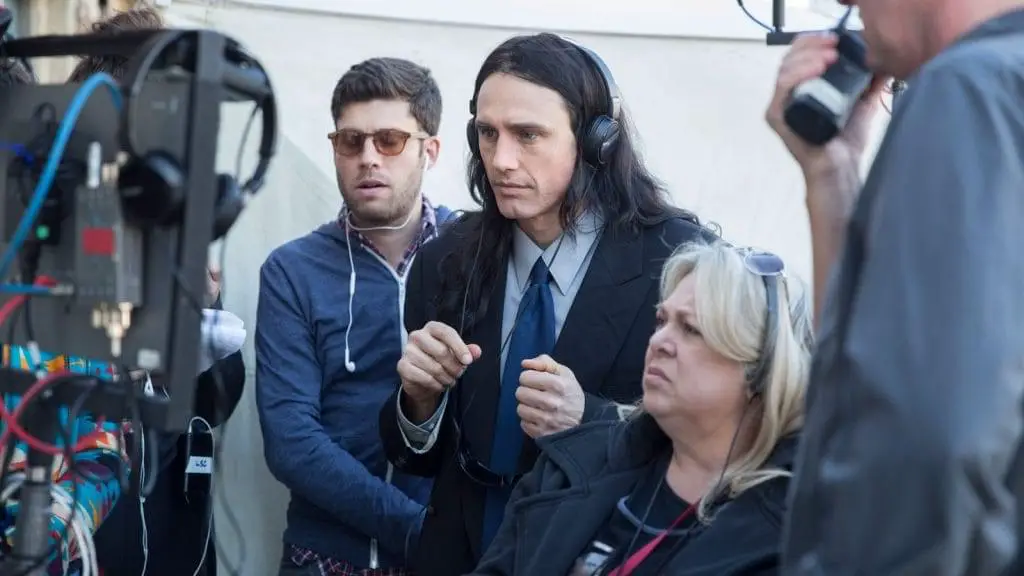
I’m watching “For Colored Girls”…. cringing. Please, Lord, shut off the senses. I don’t want to see this disorienting mix of ballet lessons and brutality. I don’t want to hear voice-over poetry blended with overwrought monologues describing how irreparably messed up everyone is. Stop the sudsy smell emanating from this soap-opera porn for man-haters. The whole thing is about as palatable as last night’s “Dirty Jobs” episode, where Mike Rowe drags animal carcasses out of infested crawl spaces.
Before crucifying the film, let me throw out a few disclaimers. I’m familiar with Tyler Perry’s moving life story, in which a courageous child escapes suicide-prompting domestic abuse, and gradually launches a black cultural zeitgeist through plays, films, books, and television. His movies alone have grossed over a half-billion dollars. And Perry also shows guts by addressing religious faith and respect for one’s elders, during an age in which both are deemed un-cool. It’s tough not to love a guy who’s had it so tough – and become such a principled, prolific one-man franchise.
But even as I respect Perry, I loathed “For Colored Girls,” a jarring blend of cringe-worthy domestic violence and over-baked melodrama. One minute, we’re watching some unsuspecting woman being raped in a kitchen as her home-cooked meal boils over on the stove. Soon afterward, there’s the equally unpleasant spectacle of Whoopi Goldberg in cult-worshipping, mad-mother mode, dumping crimson ooze over her daughter’s sinful head while screeching, “Repent!” “Carrie” never had it so good. In between these uncomfortable moments are dead-boring, expository monologues straight out of “Days of Our Lives.” Let me out.
“For Colored Girls” is based around the play, “For Colored Girls Who Considered Suicide When the Rainbow is Enuf.” It makes sense. Examining the lives of several women of color who share a Big Apple apartment complex, the film employs a stagey, dialogue-heavy style straight out of live theatre. It also borrows the “We’re all in this together” structure of “Crash,” with the various characters coming to realize that – surprise, surprise – they share a universal bond. In the case of “For Colored Girls,” that bond is betrayal and brutalization at the hands of men.
This is heavy stuff. And by heavy, I’m not talking about Madea, the portly matron associated with many of Perry’s past comedy projects. In an uncharacteristic, inspired move, Perry pushed beyond his traditional feel-good fare by co-producing the harrowing “Precious” in 2009. Undoubtedly motivated by its success, the filmmaker continued this exploration of more controversial material. But Perry is no Lee Daniels (“Precious” director), and his approach lacks pacing, surprise, or subtlety. One look at each doomed situation in “For Colored Girls,” and we immediately know how things will pan out.
Here’s a laundry list of featured scenarios. A passive mother (Kimberly Elise) cowers alongside two vulnerable children as her war-veteran husband simmers in alcoholic rage. Janet Jackson appears as an affluent, control-freak magazine editor who treats her tea-serving assistant with arrogant contempt. Loretta Devine plays a community do-gooder teaching condom use to at-risk youth, while she suffers the neglect of a noncommittal lover.
Two sisters (Thandie Newton and Tessa Thompson) take passive-aggressive revenge on their religious-freak mother through serial promiscuity. A sweet, too-trusting ballet instructor (Anika Noni Rose) pays dearly for… well, for being a sweet, too-trusting ballet instructor. All the while, a wise grandmother (Phylicia Rashad) peers knowingly from an open apartment door at the whole downward-spiral, accurately predicting the worst.
We’re introduced to each woman’s unhappy lot in life. We vicariously experience her unraveling at the hands of some male sociopath (or hear about past, unresolved damage). Each broken soul emotes via a wrenching, expository speech about a f****d-up background. All is forgiven, dealt with, and wrapped up in a tidy, soul-stirring embrace.
It’s obvious that Perry means well. Few films offer serious depictions of abused women, however misguided the approach. Fewer films focus on stories about abused black women. And you can count on one hand movies concerned entirely with the multiple perspectives and experiences shared by an entire community of abused black women. “For Colored Girls” will hopefully act as catalyst for more films exploring this theme.
None of this, however, means that “For Colored Girls” is anywhere near a good movie, or even a mediocre one. The film’s problem isn’t its brave subject matter, nor the ensemble of capable actresses. “For Colored Girls” sinks under the sledgehammer-heavy, paint-by-numbers approach used in delivering its crucial message. Nearly all of the men are despicable, antisocial manipulators. To show that Jackson’s ice queen is human, her eye sheds a single, tell-tale tear while viewing a stirring opera. To reassure us that the abusive war veteran is, in fact, an abusive war veteran, Perry decks him out in a wife-beater t-shirt, fading forearm tats, and a dog-tag necklace. It’s like shorthand for the cinematically challenged.
The most obvious, over-baked stereotype involves another character’s search for an abortionist residing at the far end of a particularly seedy alleyway. As she cautiously ventures forward, a menacing pit bull barks and lurches from one wall. A grungy, mentally ill transient cackles from the opposite corner. Various skuzzy lowlifes fill up the remaining space. She finally arrives at a destination as outlandishly vile and disgusting as a spookhouse helmed by David Cronenberg. Yeah. A descent into Hell. We get it already.
While the themes surrounding these images are real as rain, the images themselves are completely unconvincing. They’re meant to provoke, but simply remind us that “For Colored Girls” is only a movie. In contrast, “Precious” – which covered similar thematic ground – looked real. It felt real. Vicious dogs and ghoulish abortionists weren’t required to give its streets an authentic sense of cruelty and dread.
The other big failing of “For Colored Girls” is its attempt to sew everything up with big, bombastic monologues. Monumental disclosures. Pivotal insights. Its final reel is bulging with long speeches that go on, and on….and on. It’s time to yawn. To stretch. To check cell-phone messages. There’s something wrong when you’ve invested two hours in the lives of a dozen characters, and are more excited by end credits than by these climactic revelations.
Is Jackson’s human refrigerator capable of warming up? Does Newton’s hot-blooded man-eater ever let her bed sheets cool down? Does the self-loathing veteran finally go ballistic? Who’s sleeping with whom, and who’s gay? What other bombshells explode in our faces?
Make your own predictions, and fill in the blanks. You’ll probably come up with a more original denouement than anything from “For Colored Girls.” Despite all of the film’s good intentions, it’s the most ham-handed, obvious, and artless film I’ve seen all year.


Clearly this critic does not know the history of the choreopoem by Miss Shange that has led to the film Colored Girls. That said, I must confess that I have been a cast member of a staged production as well as have had opportunity to direct this choreopoem. Which leads me to one point…. each individual will respond differently to this movie because of their collective personal experiences.
I applaud Mr. Tyler for adapting this 1970’s choreopoem to the screen. It was wonderful for the poem to be adapted into a script which encompassed the dialogue that emanates from one’s mouth as well as the running dialogue that goes through one’s mind.
Sometimes we may criticize because we don’t understand the ugly that exists in everyday life for someone somewhere at all times. While I may not have experienced life as seen by the women in the movie, I do recognize, appreciate and empathize with the varied character’s running rhetoric. Will it seem cliche to some observers? Possibly. Unfortunately that “cliche” is reality to many women responding as best they can with the knowledge they have gained in life up to the point where we meet them in this movie.
I look forward to future works from Mr. Tyler and hopefully a resurgence of interest in the work of Miss Shange.